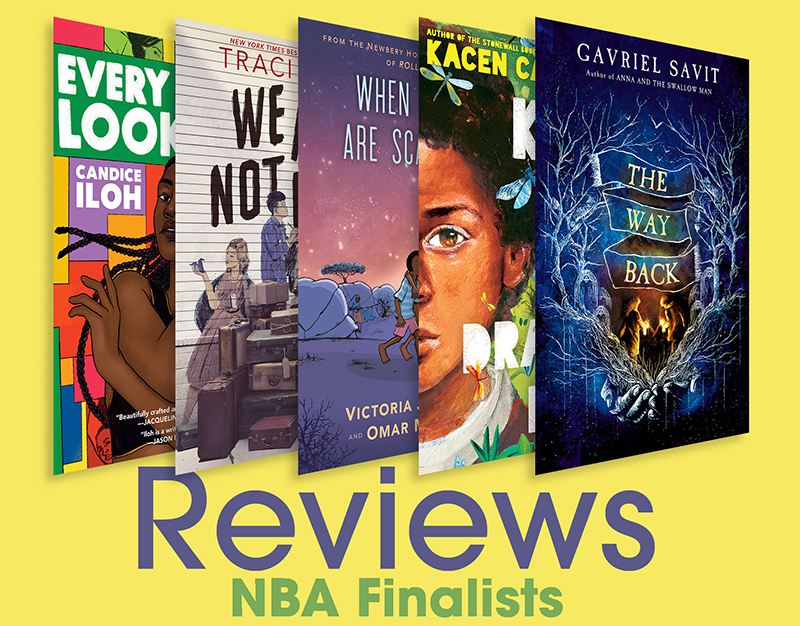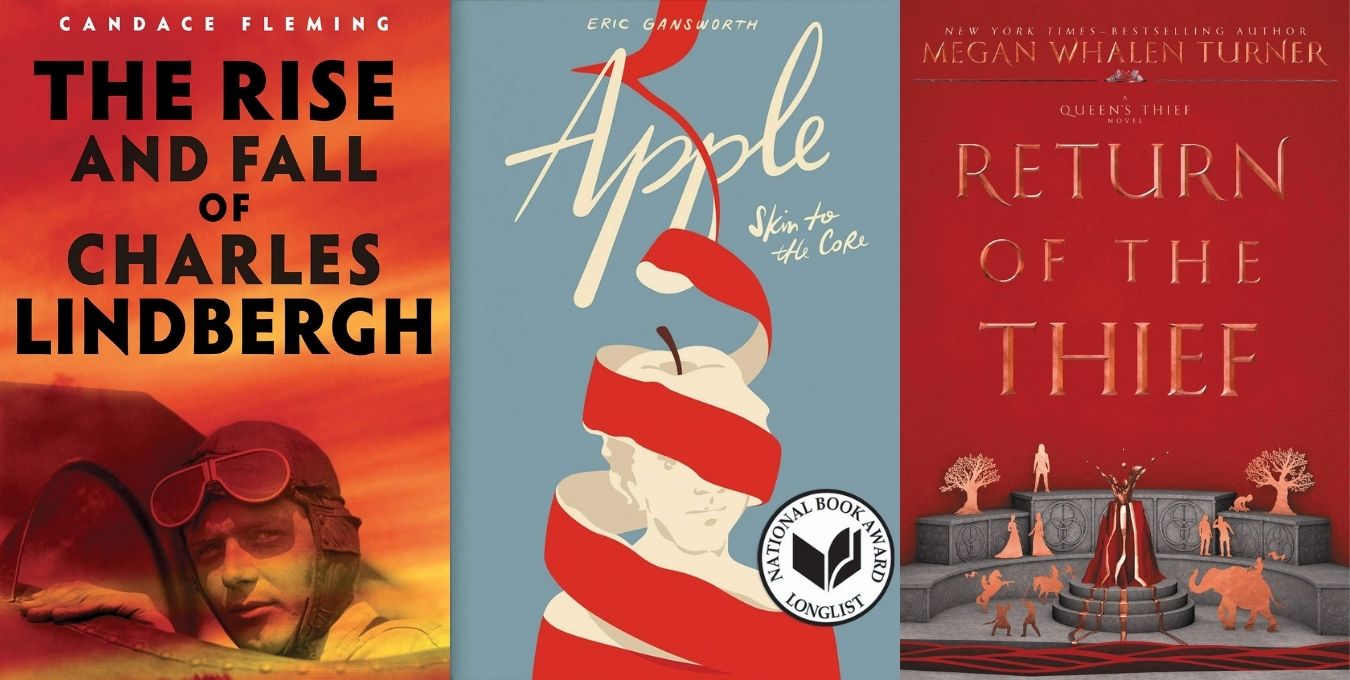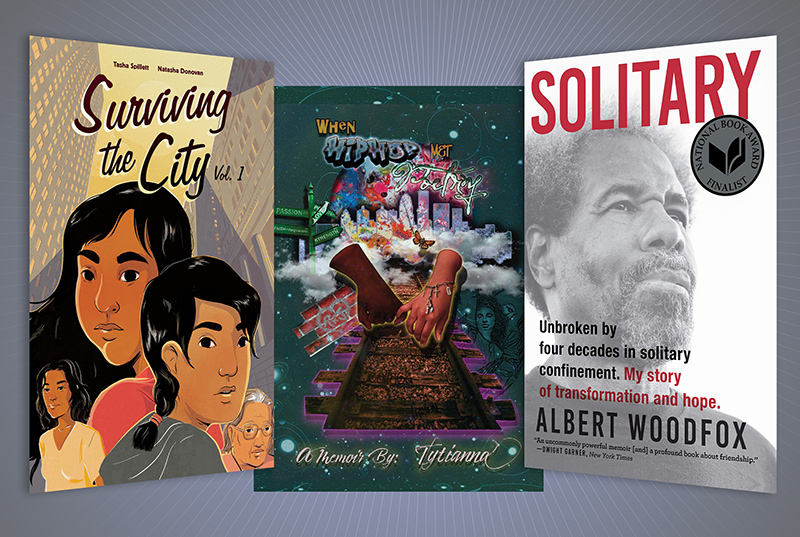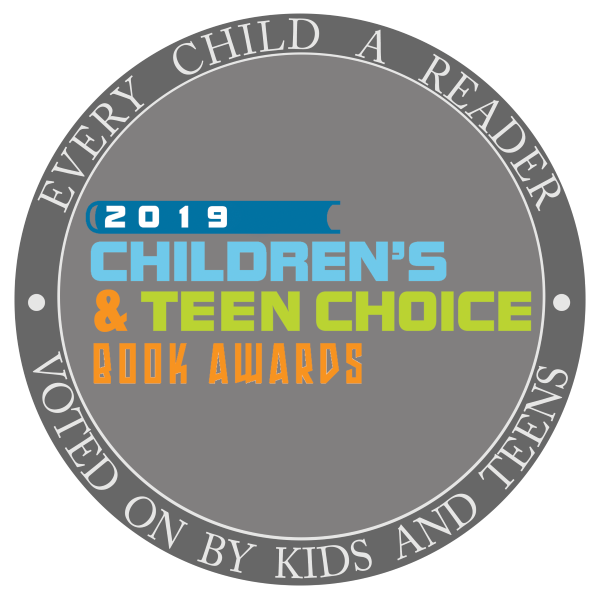Award Season Speculation: How Has the Process of Discussion Changed Over the Years?
 Are you excited? I’m excited. Who wouldn’t be? Very soon, almost too soon, it will be Monday morning and all around the world we’ll be able to tune into the live feed of ALA’s Youth Media Awards to hear the winners of the Caldecott, Newbery, Printz, etc. Not like in the old days when you had to either be there or have a friend there near a pay phone. News travels far faster these days, and it’s not just news. If the internet era has given us anything it’s been the ability for these major award committees to discuss their titles instantaneously with their fellow committee members through emails, conference calls, spreadsheets, Google docs, etc.
Are you excited? I’m excited. Who wouldn’t be? Very soon, almost too soon, it will be Monday morning and all around the world we’ll be able to tune into the live feed of ALA’s Youth Media Awards to hear the winners of the Caldecott, Newbery, Printz, etc. Not like in the old days when you had to either be there or have a friend there near a pay phone. News travels far faster these days, and it’s not just news. If the internet era has given us anything it’s been the ability for these major award committees to discuss their titles instantaneously with their fellow committee members through emails, conference calls, spreadsheets, Google docs, etc.
Huh.
One sec, lemme read what I just wrote here. Instantaneous discussion. And not just on one day but over the course of an entire year. Before 2016 even began, this year’s committees have been meeting and talking and discussing and kvetching and arguing and (there’s really no other way to say this) immersing themselves in the experience of selecting the most “distinguished” books for children and teens of the year. Most awards for children don’t allow for this level of scrutiny. Take the New York Times Best Illustrated Award, for example. That award pretty much consists of three people being tossed into a room full of books, ala the miller’s daughter in Rumplestiltskin, and told, “Have at it.” One day is allotted to them to select the best of the best. Other awards take more time but discussions are held until the committee members meet in person.
ADVERTISEMENT
ADVERTISEMENT
The ALA Youth Media Awards are a bit different due to their sheer length. It gives one reason to pause and wonder. What was the first YMA committee to use email? Spreadsheets? And what is the result? Let’s do some rough estimations. Let’s say that in 1999, most people had email and the committees started using it regularly. What is the significant difference, if there is one, between committees in the pre-Internet era that restricted their back-and-forth conversations to Annual and Mid-Winter conferences versus today’s committees with their ability to alert their fellow committee members to the issues or strengths of the books they are considering instantaneously? Does access to something like email allow those introverts, who might sit silent during heated committee conversations, a voice of their own? Would that change the outcome of the votes? Does it make a difference? If so, what would that difference be?
It must make a difference, but it’s not the kind of thing a person can quantify. One thing’s for certain. Conversation is almost always a good thing. I commend this year’s committees, therefore, for being the most plugged in, tuned in, tunnel-visioned committees to come along yet. Can’t wait to see what you guys come up with on Monday. I simply cannot wait.
Filed under: Uncategorized
About Betsy Bird
Betsy Bird is currently the Collection Development Manager of the Evanston Public Library system and a former Materials Specialist for New York Public Library. She has served on Newbery, written for Horn Book, and has done other lovely little things that she'd love to tell you about but that she's sure you'd find more interesting to hear of in person. Her opinions are her own and do not reflect those of EPL, SLJ, or any of the other acronyms you might be able to name. Follow her on Twitter: @fuseeight.
ADVERTISEMENT
ADVERTISEMENT
SLJ Blog Network
Name That LEGO Book Cover! (#53)
Exclusive: Vol. 2 of The Weirn Books Is Coming in October | News
Fighting Public School Book Bans with the Civil Rights Act
Take Five: Middle Grade Anthologies and Short Story Collections
ADVERTISEMENT








Have the rules about online discussions loosened up? When I was on Caldecott in 2012, we had some strictly defined guidelines governing conversations between or among committee members between the conferences–it just wasn’t allowed. For example, we were not allowed to actually discuss any contenders via email or other online platforms. We had to submit our nominations directly to the chair, who would compile the master list and then email that list to everyone. But there was no conversation about those titles at that time–we had to wait to discuss until we met in person at Midwinter.
That’s an excellent question. I’d be interested in hearing from other committee members along the same lines. My impression is that these guidelines may be relaxed according to the committee. If this is wrong, lemme know!
I think any emailing among committee members would be strictly forbidden UNLESS every committee member had access to the contents of those emails and full participation in any discussion.
I really enjoyed your ideas regarding the use of email (writing to express one’s thoughts) as opposed to talking and agree that writing has at least two benefits. Writing allows for revision and clarification and the wisdom of a time period between composing and sending. I also agree that many people will express themselves in writing who might hold back from verbal contributions.
Perhaps someday, all discussion will be in writing and available to all who have interest. Until that time, my excitement comes from the lists so many of my trusted bloggers post this time of the year. I couldn’t care less about the opinions of a group of 15 sequestered at ALA.